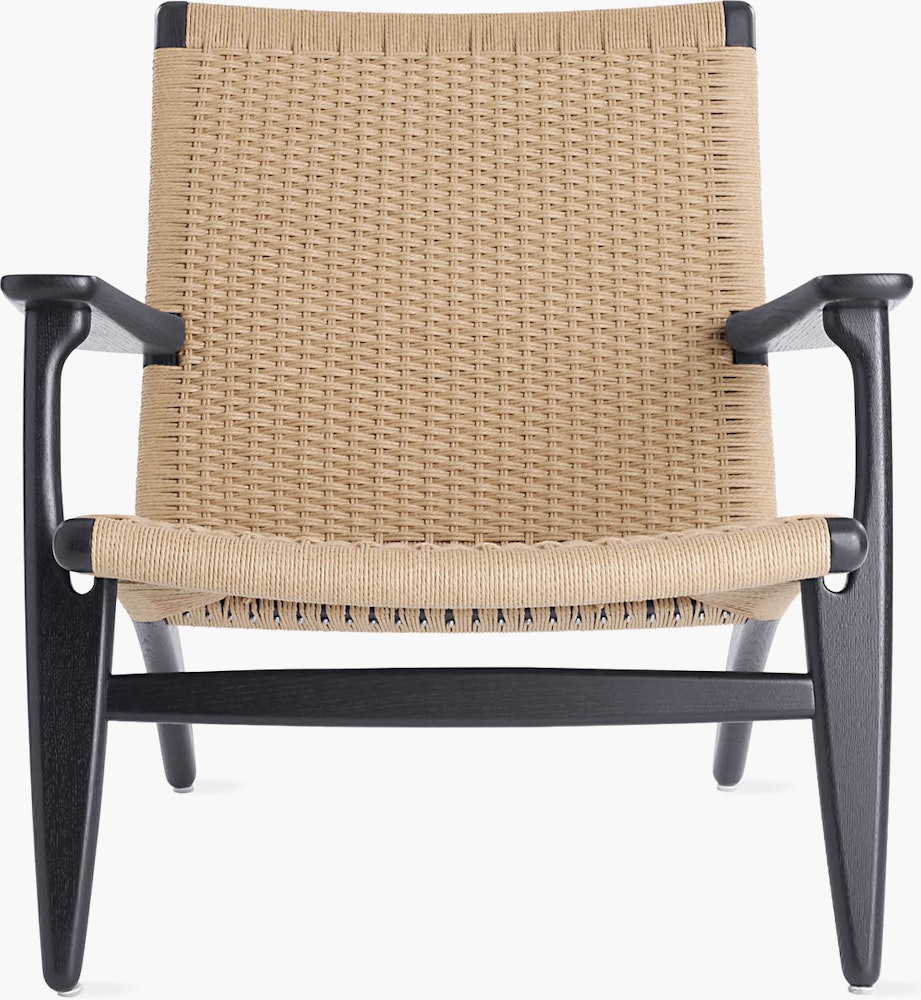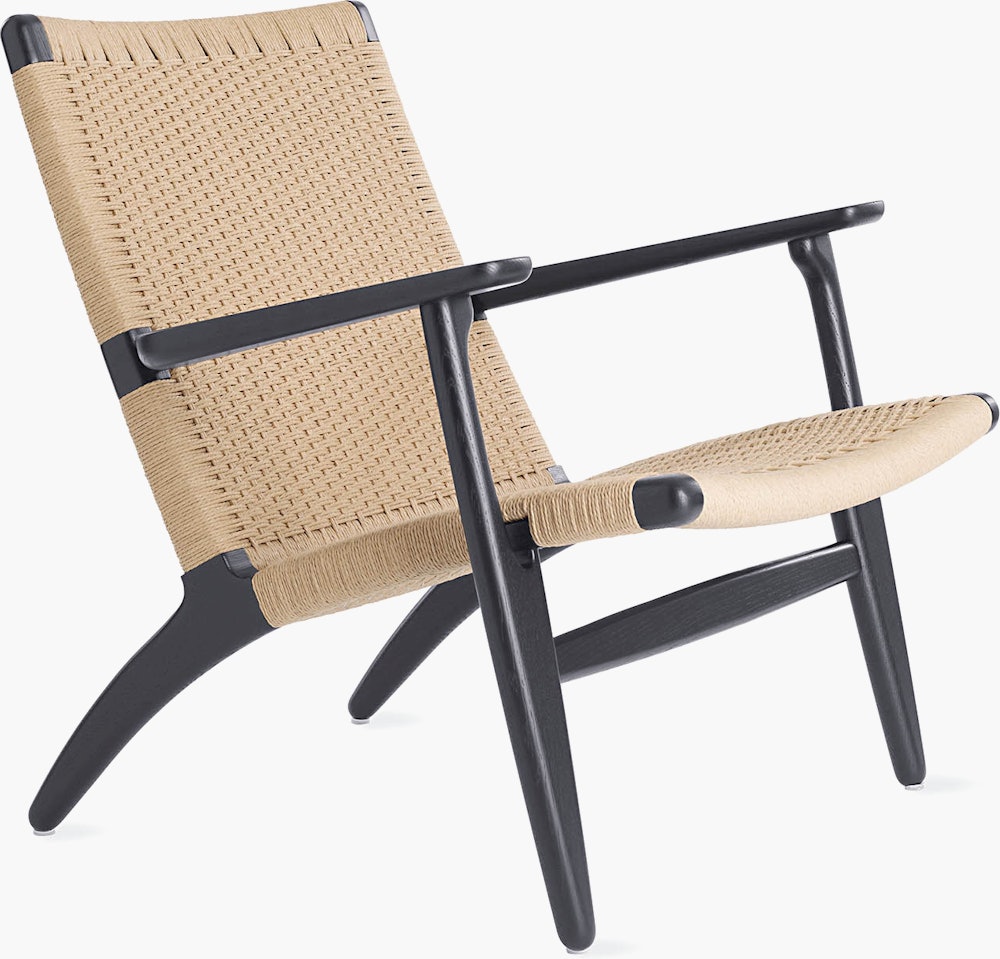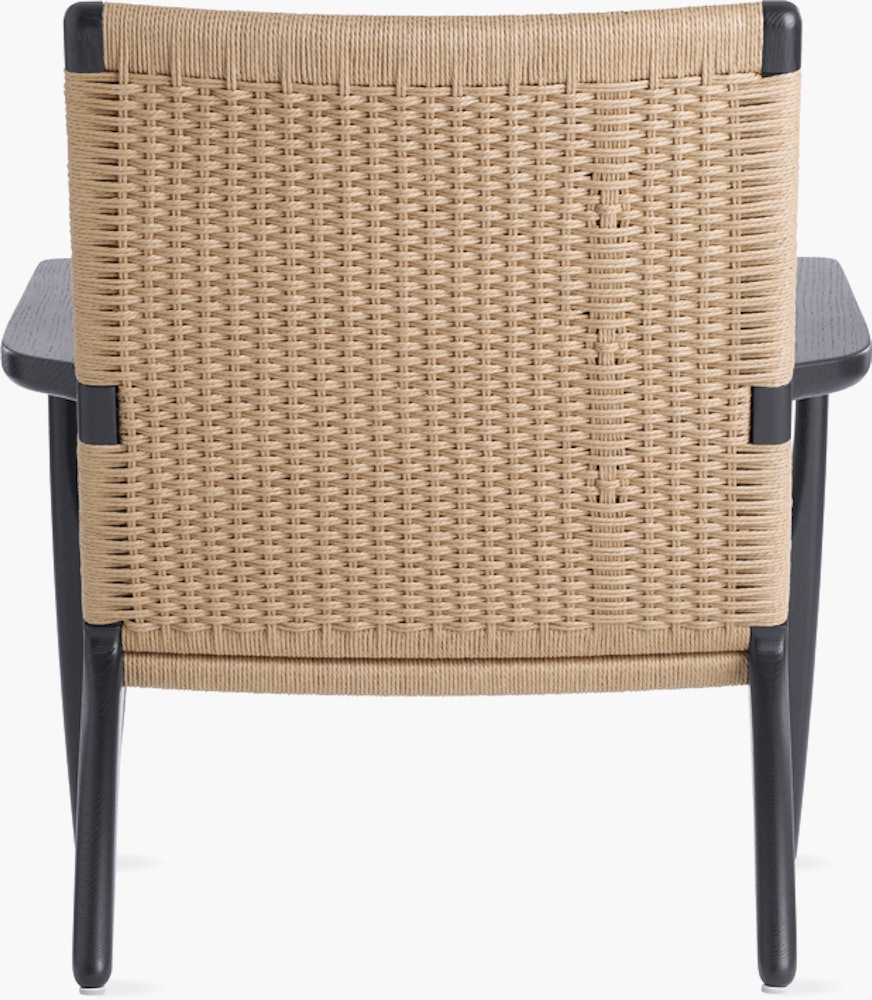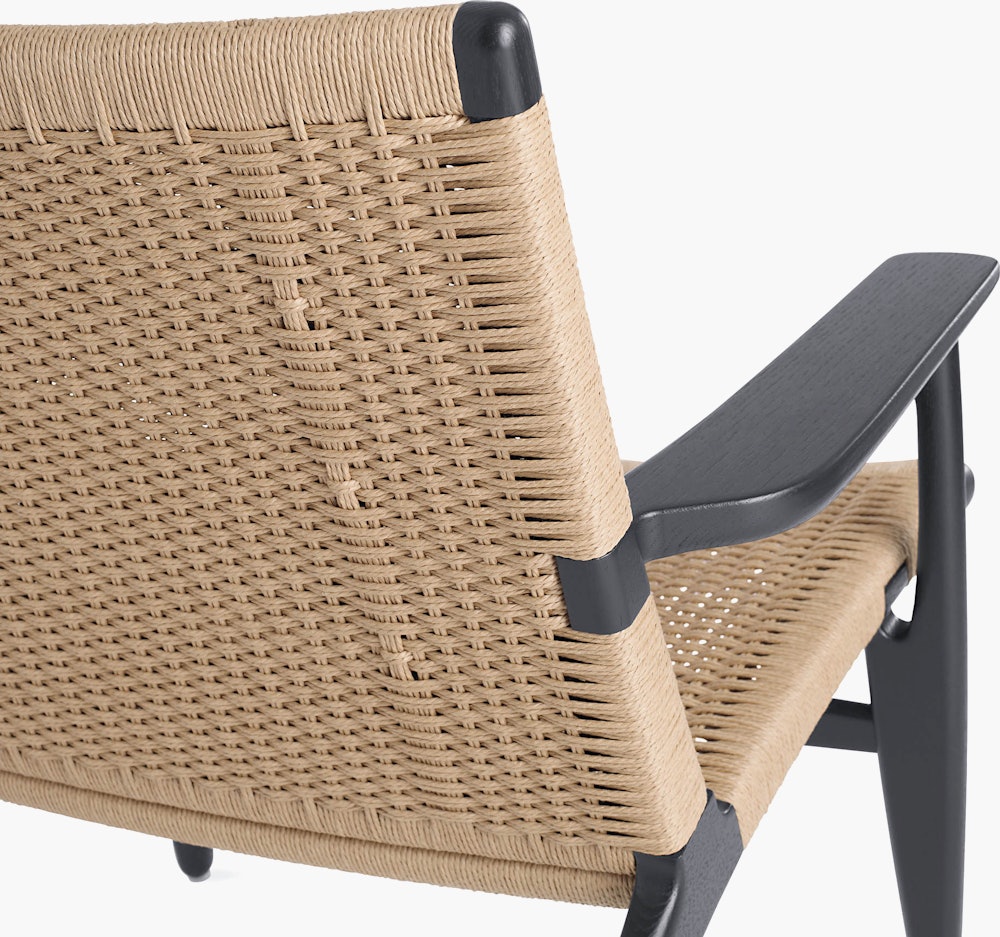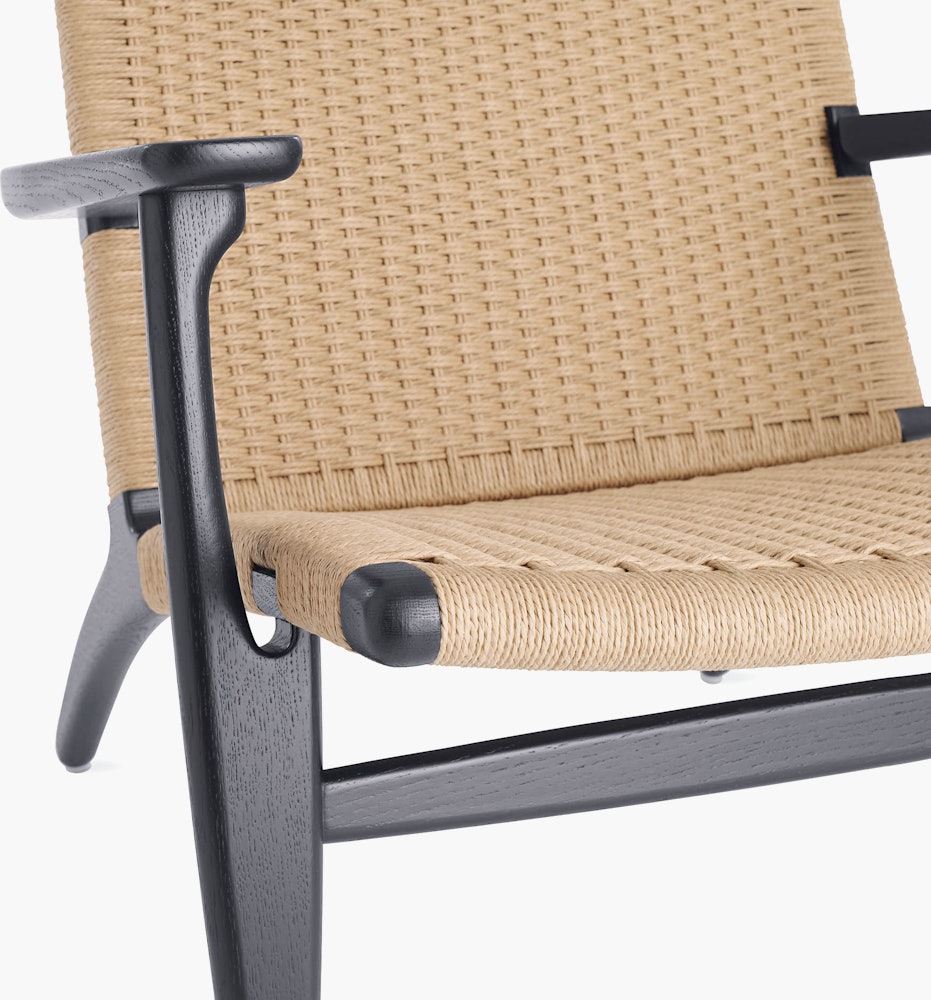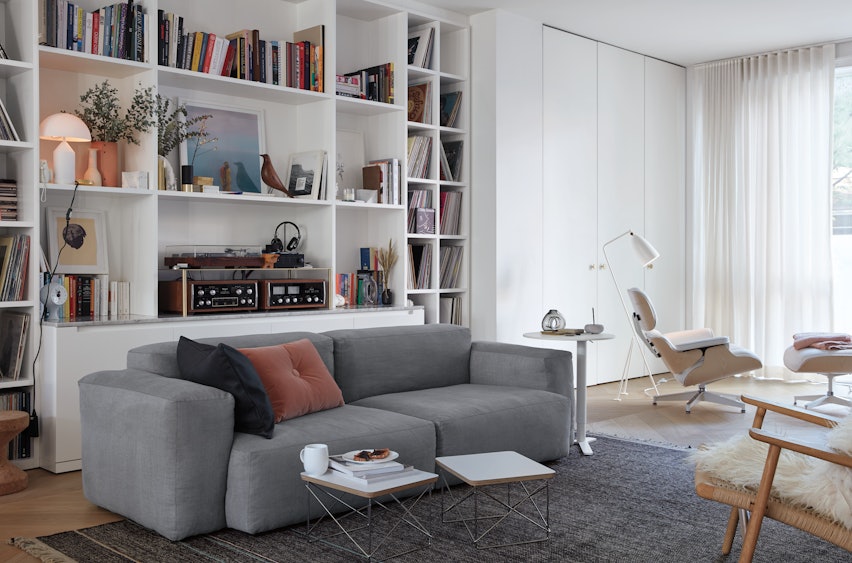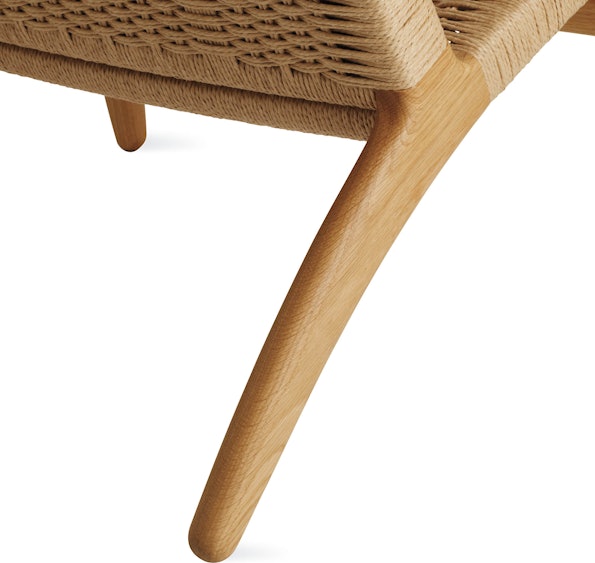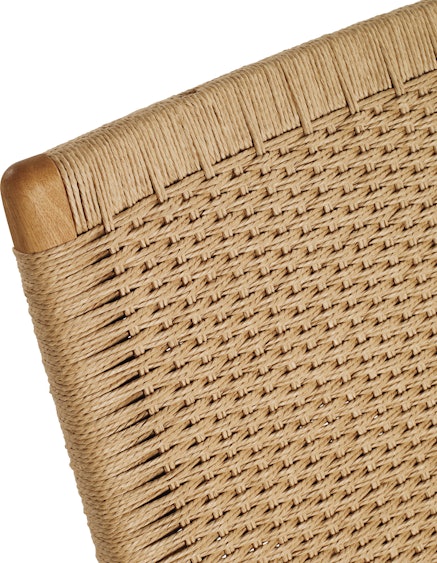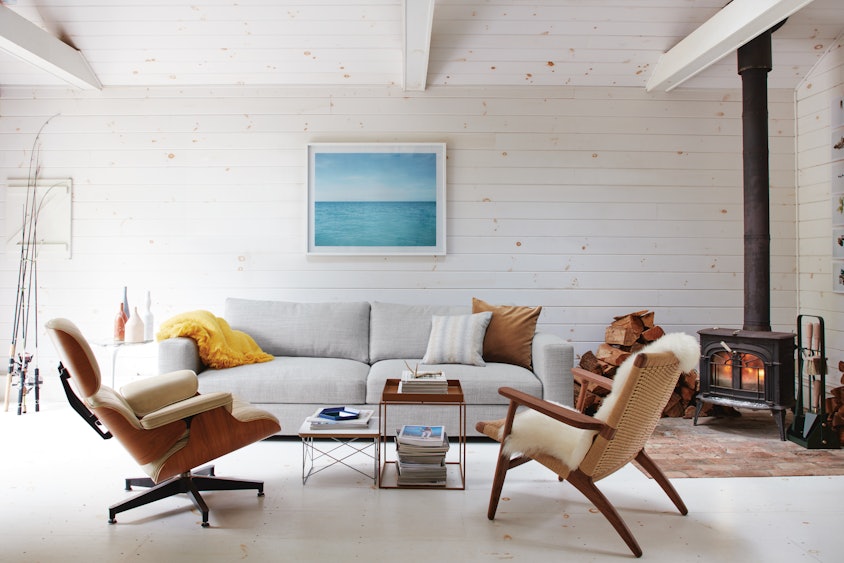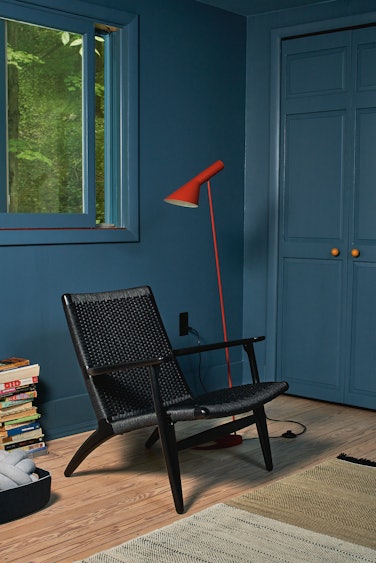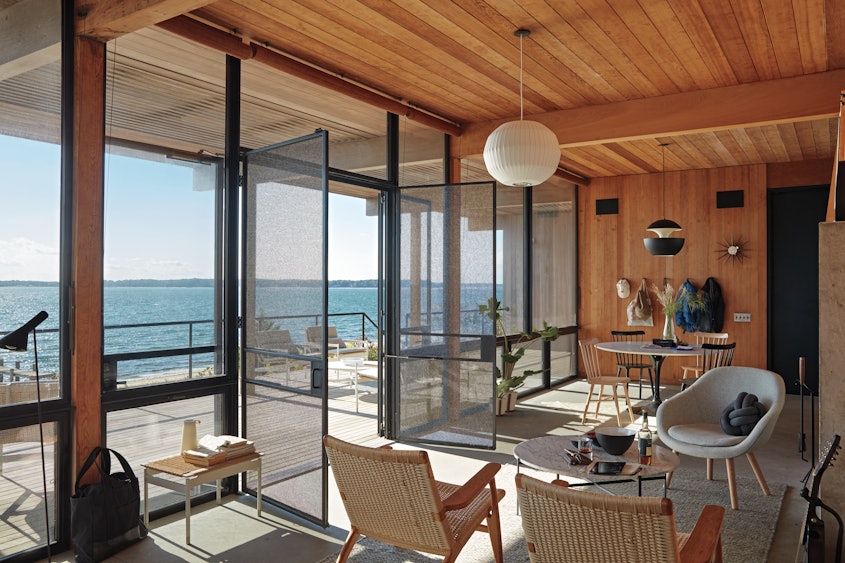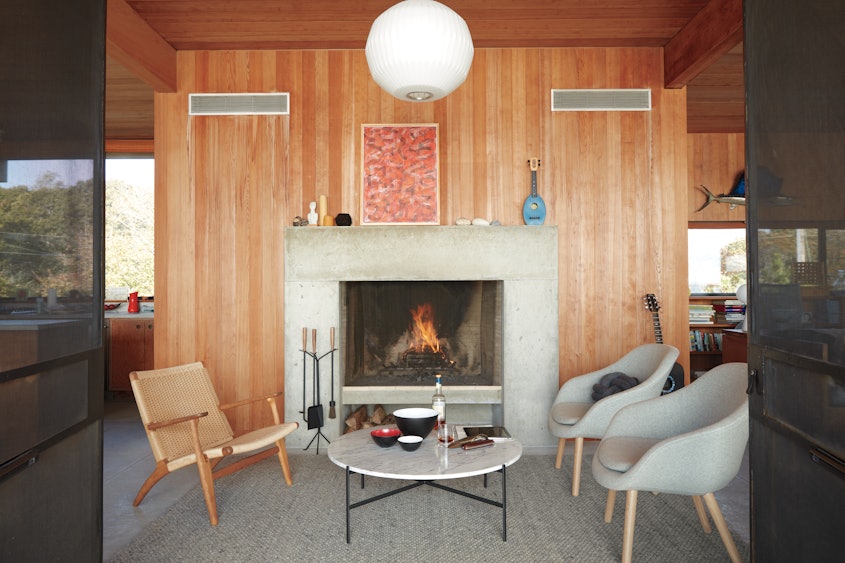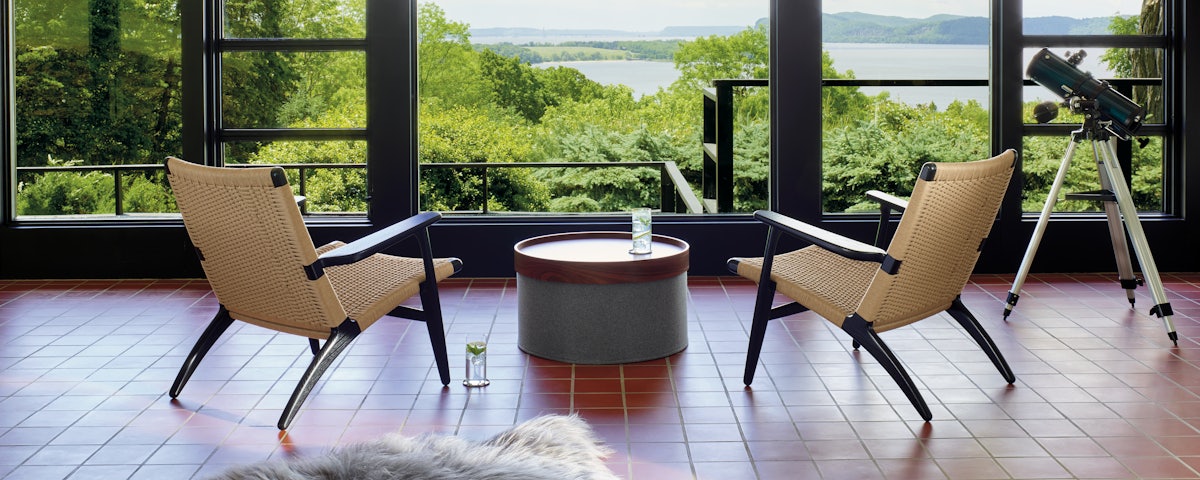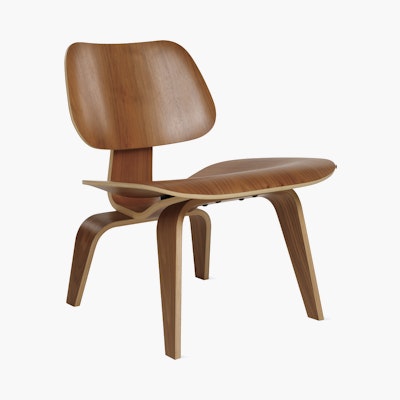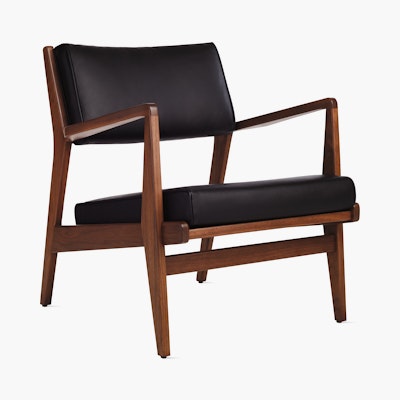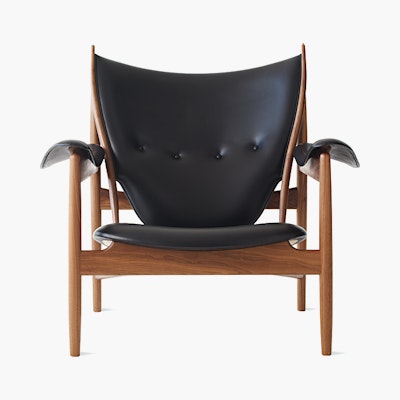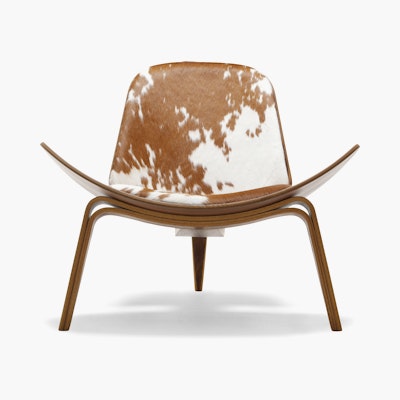4.1 out of 5 Customer Rating
Item No.
516631
CH25 Easy Chair
4.1 out of 5 Customer Rating
Item No.
516631
CH25 Easy Chair
Black Lacquer
Black Oak
Oiled Oak
Walnut
Available to ship in:
- By legendary Danish designer known for “organic functionalism.”
- With paper cord seat and back, beautiful from all sides.
- Solid oak or walnut frame assembled with exacting joinery.
- 28¾" H 28" W 28¾" D
Shipping Options
- Threshold Delivery, In-Home Delivery
Return Options
Not satisfied with your purchase? We'll work with you to make it right. Contact us within three (3) days of your order’s delivery. Learn more.
2-year warranty (terms and conditions may vary)
Designed by Hans Wegner for Carl Hansen & Søn
Manufacturer SKU:
Details
Sculptural and balanced, the Easy Chair (1950) is a classic example of the “organic functionalism” for which Hans Wegner is famous. Its natural elegance is exemplified by the 1,300 feet of paper cord that creates the seat and back, which takes a skilled craftsperson eight-plus hours to weave. The solid oak frame has fluid lines and exacting joinery. Relaxed and intuitively ergonomic, the Easy Chair can blend with modern or traditional interiors in nearly any room in the house. Made in Denmark.
- By legendary Danish designer known for “organic functionalism.”
- With paper cord seat and back, beautiful from all sides.
- Solid oak or walnut frame assembled with exacting joinery.
- Blends with modern or traditional decor.
- Made in Denmark.
- Brand
- Carl Hansen & Søn
- General Dimensions
-
- 28¾" H 28" W 28¾" D
- Product Weight
- 34 lbs
- Assembly
- Comes fully assembled
- Warranty
- 2-year warranty (terms and conditions may vary)
Easy Chair
- Height (in): 28¾
- Width (in): 28
- Depth (in): 28¾
- Weight (lbs): 34
- Seat Height (in): 13⅞
- Lacquered oak, oiled oak or walnut frame
- Paper cord seat
- Notification of Filling Contents

Hans Wegner
Hans Wegner stands among designers Finn Juhl, Arne Jacobsen, Børge Mogensen, Poul Kjærholm and Verner Panton as a master of 20th-century Danish modernism. More specifically, he was instrumental in developing a body of work known as organic functionalism. His early training included both carpentry and architecture.
More on Hans Wegner